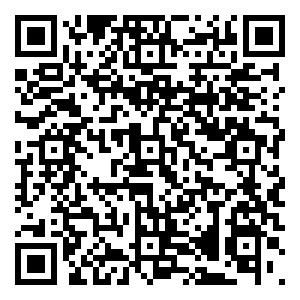| [1] |
Shunhang Li, Jian Li, Xin Xu, Yushan Huang, Yilin Zhang, Xiaoshuang Xu, Weizhen Guan, Xiaoping Liu, Jing Li.
Factors in Work-Related Musculoskeletal Disorders in Dentists: A Structural Equation Model
. Biomedical and Environmental Sciences,
2025, 38(5): 639-643.
doi: 10.3967/bes2025.037
|
| [2] |
Lei Qi, Jinfeng Zhu, Yanbo Qi, Hong Chao, Yu Cheng, Xiaolei Yang, Hongjie Li, Gang Li, Jicheng Liu.
Glyphosate Based-Herbicide Induced Nephrotoxicity through Oxidative Stress and the Imbalance of Osmotic Pressure in Mice
. Biomedical and Environmental Sciences,
2024, 37(12): 1453-1457.
doi: 10.3967/bes2024.178
|
| [3] |
WANG Han Lin, XUE Yan Feng, CUI Bao Qiu, LIU Hong, SHEN Xin Xin.
Risk Factors of Depression Screened by Two-Sample Mendelian Randomization Analysis: A Systematic Review
. Biomedical and Environmental Sciences,
2024, 37(1): 85-95.
doi: 10.3967/bes2024.007
|
| [4] |
Qiao Wang, Hengyu Luan, Chunyan Li, Rufang Gong, Qiongxuan Li, Jiayi Deng, Xiaoyong Sai.
Efficacy of a Nutritional Cream Intervention to Treat Depression in Rescuers: A Randomized Controlled Trial
. Biomedical and Environmental Sciences,
2024, 37(7): 754-761.
doi: 10.3967/bes2024.096
|
| [5] |
MENG Wen Wen, BAI Yong Yi, YAN Li, ZHENG Wei, ZENG Qiang, ZHENG Yan Song, ZHA Lin, PI Hong Ying, SAI Xiao Yong.
Effect of Home Blood Pressure Telemonitoring Plus Additional Support on Blood Pressure Control: A Randomized Clinical Trial
. Biomedical and Environmental Sciences,
2023, 36(6): 517-526.
doi: 10.3967/bes2023.063
|
| [6] |
WANG Shu Lei, SUN Meng Yun, HUANG Xing, ZHANG Da Ming, YANG Li, XU Tao, PAN Xiao Ping, ZHENG Rui Min.
Benefits of Mindfulness Training on the Mental Health of Women During Pregnancy and Early Motherhood: A Randomized Controlled Trial
. Biomedical and Environmental Sciences,
2023, 36(4): 353-366.
doi: 10.3967/bes2023.041
|
| [7] |
GUO Ye Xin, WANG An Qi, GAO Xin, NA Jun, ZHE Wei, ZENG Yi, ZHANG Jing Rui, JIANG Yuan Jing, YAN Fei, YUNUS Mukaram, WANG Hui, YIN Zhao Xue.
Obesity is positively Associated with Depression in Older Adults: Role of Systemic Inflammation
. Biomedical and Environmental Sciences,
2023, 36(6): 481-489.
doi: 10.3967/bes2023.059
|
| [8] |
ZHANG Yu Tong, HUANG Tao, ZHOU Fang, HUANG Ao Di, JI Xiao Qi, HE Lu, GENG Qiang, WANG Jia, MEI Can, XU Yu Jia, YANG Ze Long, ZHAN Jian Bo, CHENG Jing.
Correlation between Anxiety, Depression, and Sleep Quality in College Students
. Biomedical and Environmental Sciences,
2022, 35(7): 648-651.
doi: 10.3967/bes2022.084
|
| [9] |
DONG Jing Xiao, LI Ao Fei, LI Run Qing, CHAO Shuang, YANG Song, ZHAO Xiu Ying.
Epidemiological and Clinical Features of Rotavirus and Adenovirus Related Gastroenteritis in Beijing: A Retrospective Case-control Study in Pediatric Patients
. Biomedical and Environmental Sciences,
2020, 33(3): 196-200.
doi: 10.3967/bes2020.027
|
| [10] |
TAO Yong Kang, SHI Jing, YU Pu Lin, ZHANG Guo Qiang.
The Role of Endoplasmic Reticulum Stress-related Apoptosis in Vascular Endothelium Pathogenesis
. Biomedical and Environmental Sciences,
2018, 31(7): 555-559.
doi: 10.3967/bes2018.076
|
| [11] |
LIU Lu, CHEN Song Gen, TANG Shi Chuan, WANG Sheng, HE Li Hua, GUO Ze Hua, LI Jing Yun, YU Shan Fa, WANG Zhong Xu.
How Work Organization Affects the Prevalence of WMSDs:A Case-control Study
. Biomedical and Environmental Sciences,
2015, 28(9): 627-633.
doi: 10.3967/bes2015.088
|
| [12] |
LI Mei Ling, LIN Ji, HOU Jian Guo, XU Lei, CUI Xin Gang, XU Xing Xing, YU Yong Wei, HAN Xue, WANG Guo Min, GUO Jian Ming, XU Dan Feng, THOMPSON Timothy C, CAO Guang Wen, ZHANG Hong Wei.
Environmental and Psycho-social Factors Related to Prostate Cancer Risk in the Chinese Population:a Case-control Study
. Biomedical and Environmental Sciences,
2014, 27(9): 707-717.
doi: 10.3967/bes2014.089
|
| [13] |
WEI Qiang, JIANG Meng Nan, HAN Jun, WANG Zi Jun.
Immune Control Strategies for Vaccinia Virus-related Laboratory-acquired Infections
. Biomedical and Environmental Sciences,
2014, 27(2): 142-146.
doi: 10.3967/bes2014.031
|
| [14] |
ZUO Hao Xiao, LI Jin Quan, HAN Bing, KE Chen Juan, LIU Xu Dong, ZHANG Yu Chao, LI Li, YANG Xu.
Di-(n-butyl)-phthalate-induced Oxidative Stress and Depression-like Behavior in Mice with or without Ovalbumin Immunization
. Biomedical and Environmental Sciences,
2014, 27(4): 268-280.
doi: 10.3967/bes2014.001
|
| [15] |
MENG Xiu Hong, TAO Fang Biao, WAN Yu Hui, HU Yan, WANG Ren Xi.
Coping as a Mechanism Linking Stressful Life Events and Mental Health Problems in Adolescents
. Biomedical and Environmental Sciences,
2011, 24(6): 649-655.
doi: 10.3967/0895-3988.2011.06.009
|
| [16] |
HOU Feng Su, LI Ting, LI Juan, HU Xiao Qin, LIU Zhi Yue, YUAN Ping.
The Effects of Demographic Features on Differences in Sensitivity between PCL-C and SCL-90 Scores in a Follow-up Study in Secondary School Students in the Wenchuan Earthquake Region
. Biomedical and Environmental Sciences,
2011, 24(6): 642-648.
doi: 10.3967/0895-3988.2011.06.008
|
| [17] |
HUANG HuaPin, CHE ChunHui, LIU ChangYun, HANG Fang, MAO XiaoHong.
Factors Associated with Generic and Disease-specific Quality of Life in Epilepsy
. Biomedical and Environmental Sciences,
2011, 24(3): 228-233.
doi: 10.3967/0895-3988.2011.03.004
|
| [18] |
YAN-PING LI, GUAN-SHENG MA, EVERT G. SCHOUTEN, XIAO-QI HU, ZHAO-HUI CUI, DONG WANG, FRANS J. KOK.
Report on Childhood Obesity in China (5) Body Weight, Body Dissatisfaction, and Depression Symptoms of Chinese Children Aged 9-10 Years
. Biomedical and Environmental Sciences,
2007, 20(1): 11-18.
|
| [19] |
GONG-HUAN YANG, MICHAEL R. PHILLIPS, MAI-GENG ZHOU, LI-JUN WANG, YAN-PING ZHANG, DONG XU.
Understanding the Unique Characteristics of Suicide in China: National Psychological Autopsy Study
. Biomedical and Environmental Sciences,
2005, 18(6): 379-389.
|
| [20] |
ZHOU JUN-FU, YAN XIAO-FENG, GUO FANG-ZHEN, SUN NING-YA, QIAN ZHI-JUN, DING DE-YUN.
Effect of Cigarette Smoking and Smoking Cessation on Plasma Constituents and Enzyme Activities Related to Oxidative Stress
. Biomedical and Environmental Sciences,
2000, 13(1): 44-55.
|

 点击查看大图
点击查看大图




 下载:
下载:

 Quick Links
Quick Links